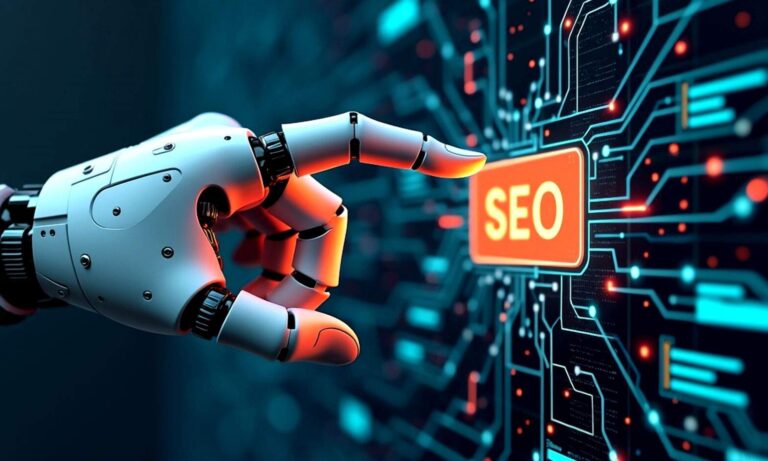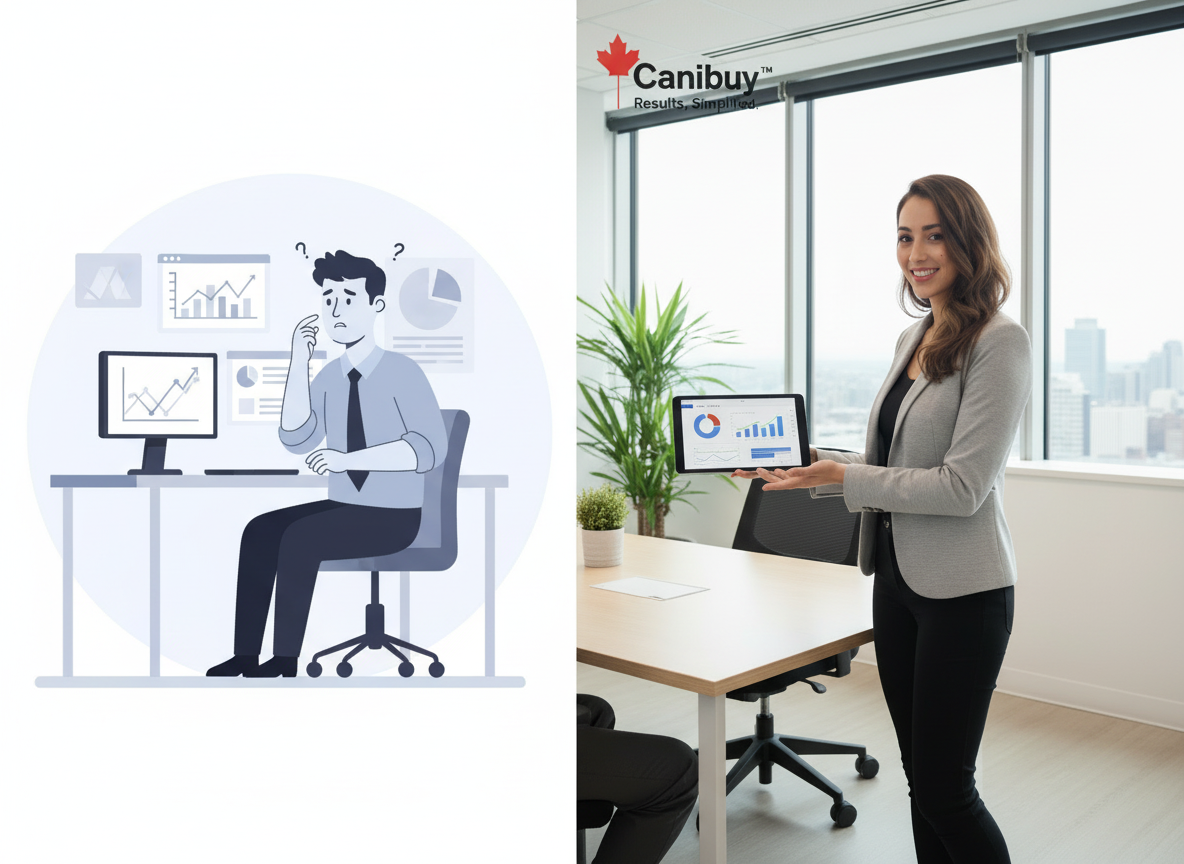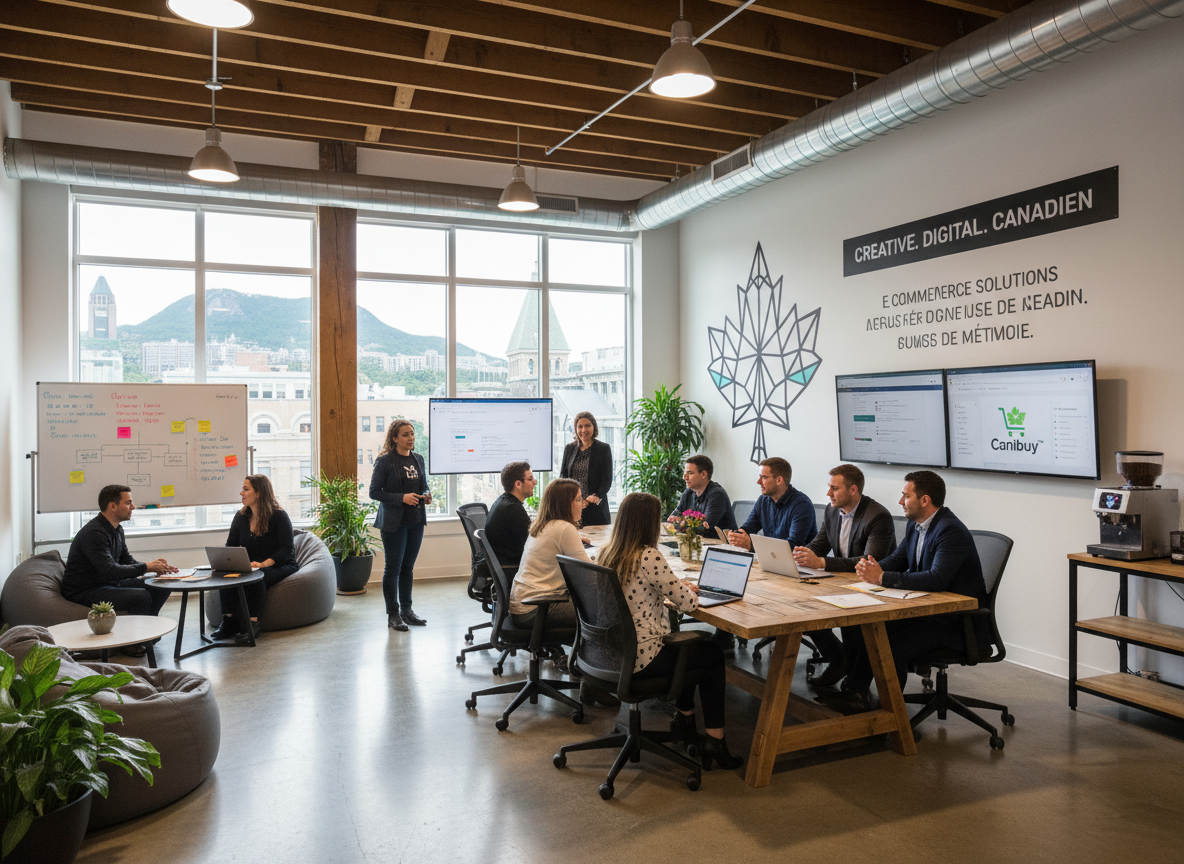Table of Contents
Search engine optimization (SEO) has long been one of the pillars of digital marketing. It drives qualified traffic, improves visibility, and builds a lasting presence on the web. But a new game changer has shaken up the rules: artificial intelligence. With the emergence of tools capable of analyzing, optimizing, and even producing content in just minutes, businesses are now wondering whether they should still rely on purely manual SEO or switch to AI-assisted SEO. And more importantly: which approach delivers the best return on investment (ROI)?
What is AI-assisted SEO?
AI-assisted SEO (or AI SEO) uses intelligent technologies to automate or speed up SEO-related tasks. These tools can:
- Find relevant keywords from large databases
- Analyze competitors and identify positioning opportunities
- Generate SEO-optimized content
- Detect and fix technical issues on a site
Popular solutions in 2025 include Jasper, SurferSEO, MarketMuse, and Frase. The main advantage of AI SEO is speed: what used to take days can sometimes be done in just a few hours, while still following Google’s best practices.
What is traditional SEO?
Traditional SEO relies on human expertise. SEO professionals manually analyze data, build tailored strategies, and create content adapted to the brand and its audience. Tasks include manual keyword research, content writing by specialized copywriters, technical optimization by an expert, and link building through partnerships and trust-based relationships.
This approach requires more time and resources, but it offers total control over the quality, tone, and relevance of the work.
Comparison: ROI, time, and efficiency
In terms of cost, AI-assisted SEO can seem more affordable in the short term. Tool subscriptions require an investment, but they significantly reduce the amount of human time needed. This means a small team can manage a much larger workload.
When it comes to speed, AI is unmatched. For an e-commerce site with thousands of products, it can generate optimized descriptions in record time. However, this speed sometimes comes with more generic content, which needs review and personalization to ensure the site retains authenticity.
Traditional SEO, on the other hand, is slower and more expensive but often has the upper hand in the long run. Content created by experts tends to be more unique, more engaging, and better aligned with the brand’s voice, which builds visitor trust and therefore improves conversion rates.
Real-world examples in 2025
Some industries benefit greatly from AI-assisted SEO. News websites and high-volume blogs use AI to spot trends in real time and publish quickly. Large e-commerce sites automate the creation and optimization of product listings, saving hundreds of hours of work.
Conversely, luxury brands or companies in niche markets prefer a more traditional approach. Their customers expect highly personalized content, with a unique tone and carefully crafted messaging. In these cases, human expertise remains essential.
SEO trends in 2025
Several developments stand out this year:
- Hybrid SEO: combining AI for analysis and fast production with humans for strategy and personalization.
- Advanced personalization: AI now tailors content to the behaviors and preferences of specific audience segments.
- Automated reporting: AI tools provide real-time performance data and suggest immediate optimizations.
- Rapid adaptation to algorithm changes: since Google itself uses AI to rank results, AI SEO tools adjust more quickly to new rules.
Which choice delivers a better ROI?
The truth is, there’s no single answer. For companies that need to produce a lot of content quickly or manage a complex site, AI can deliver impressive short-term ROI. For those focusing on quality, differentiation, and building trust with their audience, traditional SEO remains more profitable in the long run.
The best strategy for 2025 is often hybrid: letting AI handle data collection, technical audits, and parts of the writing process, while maintaining human oversight for creativity, relevance, and brand consistency. This combination blends speed, efficiency, and sustainability, maximizing return on investment.
Conclusion
In 2025, ignoring AI in SEO would be a strategic mistake. But relying solely on it also carries risks, especially regarding quality and originality. The businesses that succeed will be those that strike the right balance between technology and human expertise, leveraging the best of both worlds to achieve strong ROI, both in the short and long term.




